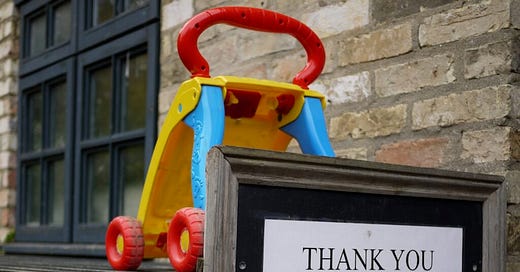Monday 26 May, 2022
The point of no return
Seen in the Orchard, Grantchester, years ago.
Quote of the Day
“Just as in London you are supposedly never more than 6ft away from a rat, in Mayfair you are rarely far from a serious human rights violation.”
Caroline Knowles, in her book Serious Money: Walking Plutocratic London.
Musical alternative to the morning’s radio news
Miles Davis | So What
Nine minutes of bliss.
Long Read of the Day
Permanent Pandemic
When Covid first arrived and it became clear that it would be an epoch-changing event, I fell to wondering what its historical forebears might be — events that, while dramatic enough at the time of their occurrence, led to consequences and changes of such magnitude that few people at the time could have foreseen.
I came up with two: the assassination of the Archduke Franz Ferdinand in June 1914; and the 9/11 terrorist attack on the US in 2001. The first led to a catastrophic war; the second to comprehensive surveillance in democratic societies as well as authoritarian ones. To that pair we now need to add Covid-19.
It’s the normalisation of the hitherto-unthinkable in states’ responses to the pandemic that has prompted this thought-provoking essay by Justin E. H. Smith in Harper’s. I think it’s outside the paywall, but I found that I had to access it using Firefox Focus because my regular browser (which does a lot of ad-blocking) triggered a “subscribe to read on” dialogue. Anyway, I hope you can get to it because it’s worth your time.
Here’s a sample:
Even tyrants would be foolish to pass down an iron law when a low-key change of norms would lead to the same results. And there is no question that changes of norms in Western countries since the beginning of the pandemic have given rise to a form of life plainly convergent with the Chinese model. Again, it might take more time to get there, and when we arrive, we might find that a subset of people are still enjoying themselves in a way they take to be an expression of freedom. But all this is spin, and what is occurring in both cases, the liberal-democratic and the overtly authoritarian alike, is the same: a transition to digitally and algorithmically calculated social credit, and the demise of most forms of community life outside the lens of the state and its corporate subcontractors.
What do Elon Musk and Jeff Bezos have in common? Answer: an unhealthy Twitter habit
Yesterday’s Observer column:
Why do billionaires tweet? Is it because they no longer have to earn a living? Or because they’re bored? Or because they spend a lot of time in, er, the smallest room in the mansion? Elon Musk, for example, currently the world’s richest fruitcake, has said that “At least 50% of my tweets were made on a porcelain throne”, adding that “it gives me solace”. This revelation motivated the astrophysicist Neil deGrasse Tyson to do some calculations, leading to the conclusion that more than 8,000 tweets over 12.5 years suggests that, on average, Musk “poops” twice a day. (I make it 1.75 a day, but that’s just quibbling.)
So why does Musk tweet so much? One explanation is that he just can’t help himself. He has, after all, revealed that he has Asperger’s. “Look, I know I sometimes say or post strange things,” he said on Saturday Night Live, “but that’s just how my brain works”. Understood. It may also be a partial explanation of his business success, because his mastery of SpaceX and Tesla suggests not only high intelligence but also an ability to focus intensely on exceedingly complex problems without being distracted by other considerations.
There are, however, darker interpretations…
My commonplace booklet
“The Book Of My Enemy Has Been Remaindered”
Lovely poem by Clive James, from his Collected Verse 1958-2003.
The book of my enemy has been remaindered
And I am pleased.
In vast quantities it has been remaindered
Like a van-load of counterfeit that has been seized
And sits in piles in a police warehouse,
My enemy’s much-prized effort sits in piles
In the kind of bookshop where remaindering occurs.
Great, square stacks of rejected books and, between them, aisles
One passes down reflecting on life’s vanities,
Pausing to remember all those thoughtful reviews
Lavished to no avail upon one’s enemy’s book —
For behold, here is that book
Among these ranks and banks of duds,
These ponderous and seemingly irreducible cairns
Of complete stiffs.




